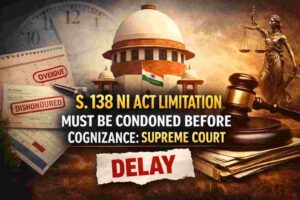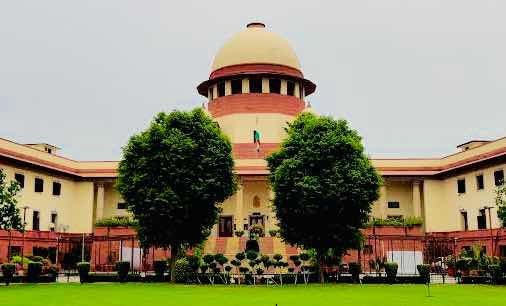Case Title – Frank Vitus v. Narcotics Control Bureau
The Supreme Court of India has ruled that bail conditions cannot include constant tracking of the accused by the police, as it infringes on the right to privacy.
A bench of Justice Abhay S Oka and Justice Ujjal Bhuyan examined whether requiring an accused to drop a pin on Google Maps for the investigating officer to access his location violated privacy rights.
Justice Oka declared that bail conditions enabling police to track movements and intrude into the private life of the accused are unacceptable.
Key Points:
- Bail conditions shouldn’t defeat the purpose of bail by allowing constant surveillance.
- The ruling emphasized the right to privacy under Article 21 of the Constitution.
- The condition requiring the accused to drop a pin on Google Maps was deemed redundant and irrelevant.
In the case concerning Nigerian national Frank Vitus, accused in a drugs case, the Delhi High Court had earlier required him to place a pin on Google Maps and obtain an assurance from his embassy that he wouldn’t leave India.
The Supreme Court found these conditions unnecessary and in violation of the right to privacy.
Court’s Perspective on Bail Conditions
The judgment, authored by Justice Oka, clarified that the object of bail conditions is not to keep constant vigil on the accused.
The court stated that such conditions could lead to a form of confinement, infringing on the accused’s right to privacy.
Justice Oka highlighted that using technology to track every movement of the accused would violate Article 21.
Google’s Input on Real-Time Tracking
The court reviewed an affidavit from Google LLC, which clarified that dropping a pin on Google Maps does not enable real-time tracking.
This input led the court to deem the condition redundant, as it didn’t assist the investigating officer.
Implications of the Ruling
This ruling emphasizes that bail conditions must respect the privacy rights of the accused. Arbitrary conditions that allow for constant surveillance are not permissible.
The court directed the deletion of the condition requiring the accused to drop a pin on Google Maps, setting a precedent for future bail conditions.
The Supreme Court’s decision reinforces the protection of privacy rights under Article 21 and ensures that bail conditions do not lead to undue surveillance of the accused.
The judgment serves as a crucial reminder of the balance between the objectives of bail and the rights of individuals.















